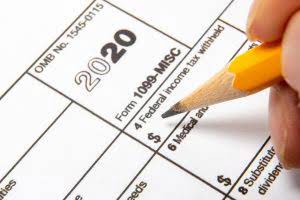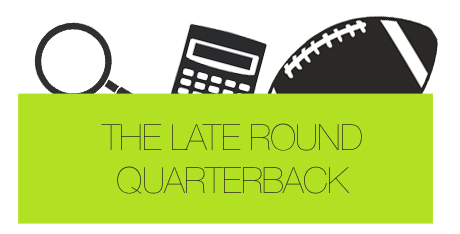Certified Public Accountant: What Is A CPA?

Public accountants work for individuals, businesses, or the government and may specialize in areas such as taxation, consulting, or auditing. Public accountants who meet certain qualifications can seek licensure to work as certified public accountants (CPAs). This page covers important information about CPA careers, including responsibilities and qualifications. You must show you understand the rights, duties, and liabilities of debtors, creditors, and guarantors as well as the audit and appeals process employed by the Internal Revenue Service (IRS). This section also covers the alternative minimum tax and both estate and gift taxation.

Depending on the company, accountants may also supervise bookkeepers or accounting clerks and handle payroll. Ken has gained a wealth of business experience through his previous employment as a CPA, Auditor, Tax Preparer and College Professor. Today, Ken continues to use those finely tuned skills to educate students as a professional writer and teacher. Although CPAs are not licensed to practice law, they are often used by attorneys to find and prove evidence as an expert witness in the courtroom. This is common in divorce proceedings, bankruptcies, and business mergers/acquisitions/splits.
What are the responsibilities of a CPA?
Each of the 50 states grants the CPA license to practice in that state. It is often equivalent to the title of Chartered Accountant (CA) in other countries, such as Australia, Canada, Hong Kong, New Zealand, and so on. The application process for the CPA Exam is extensive and cumbersome. The first step is to have the state board of accountancy confirm that all educational requirements have been satisfied, cpa what do they do and then submit a formal application once accepted. Obtaining the CPA designation is a key milestone in your career progression as it can lead to a wide range of interesting and challenging roles and leadership opportunities. CPAs work in a wide range of roles in the corporate world today, such as internal auditors, IT managers, forensic experts, tax accountants, compliance officers, and CEOs.
- When it comes to managing your money, though, a CPA isn’t necessarily a one-stop shop.
- Today, my day consisted of reviewing the monthly close done by the staff accountant.
- Talking to your CPA or accountant before starting a new business is generally a good idea.
- This person would generally handle all the accounting work, including bookkeeping, payroll and tax filings; offering business leaders strategy sessions to make a strong financial impact.
- A CPA has earned their license to file public documents and government paperwork like audits and tax returns.
To become a CPA, one must have met the state’s license criteria for practicing accounting. State licensure standards vary, but most require 150 semester hours (30 hours more than a regular 120-hour accounting bachelor’s degree). CPA license criteria in each state mandate some documented experience and a passing score on the Uniform CPA Examination.
Frequently asked questions
Each state sets its own educational criteria for the CPA credential. But most states require aspiring CPAs to earn 150 credits — or about 30 credits beyond a typical bachelor’s program. The REG section covers ethics and professional responsibility, business law, tax procedures and accounting, and federal taxation for individuals, entities, and property transactions.
The certified public accountant (CPA) is a license for working accountants that signals a degree of professional expertise. If you are an accountant or want to be one, it’s a valuable tool to help you move up the ladder. These include performing audits of public U.S. companies and preparing audited financial statements for a company, such as a balance sheet or an income statement. In 1934, the Securities and Exchange Commission (SEC) required all publicly traded companies to file periodic financial reports endorsed by members of the accounting industry.
What Is a CPA? What Do Certified Public Accountants Do?
Public accounting refers to the services that a public accountant or accounting firm offers to prepare financial documents such as tax returns and budgets. Public accountants, also called certified public accountants (CPAs), are qualified to help other businesses as well as individuals with their tax needs. A CPA, or certified public accountant, is an accounting professional who has passed the CPA exam. Additionally, they have fulfilled all the state education and work experience requirements to become a licensed CPA. These standards are those set forth by the state board of accountancy in the state in which he or she applied.
- You might like to consider the Online Master’s of Accounting (iMSA), offered by the University of Illinois Urbana-Champaign.
- They can’t conduct any outward-facing business processes like audits or government documentation.
- Find your state’s Board of Accountancy and review its website to get clarity on what you’ll need to do.
- Consult the board specific to the jurisdiction where you plan to work for details on local licensure requirements.
- Public accounting firms can range in size from a sole practitioner to hundreds or thousands of CPAs, offering services locally, regionally, nationally, or internationally.
In 1934, all publicly traded corporations were obliged to produce periodic financial reports certified by members of the accounting industry as required by the Securities and Exchange Commission (SEC). Until 1973, when the Financial Accounting Rules Board (FASB) was founded to set standards for private corporations, the AICPA developed accounting standards. You might be interested in what a Certified Public Accountant (CPA) does. The CPA is a professional certification, not a career path or job title, that can provide accounting professionals with greater career freedom and mobility. CPAs normally have only one state license, although reciprocity regulations allow them to obtain licenses in other jurisdictions. The required years of experience you need to take the CPA Exam vary from state to state, but most call for at least two years working in public accounting.
Apply/Take the CPA Exam
The accounting industry thrived in the late 1990s due to the expansion by large accounting firms into various forms of consulting. The Enron scandal in 2001 resulted in major changes in the accounting industry, not least the collapse of Arthur Andersen, one of the nation’s top accounting firms. Since the Sarbanes-Oxley Act passed in 2002, accountants have been subject to tougher restrictions concerning their consulting assignments. CPAs have a wide range of career options available in public accounting (that is, working for an accounting firm), corporate accounting (working inside a company), or government service.

